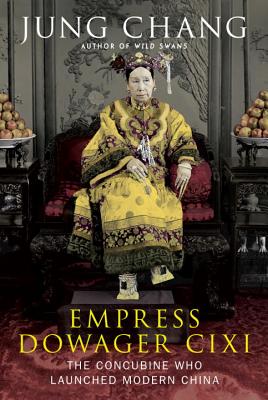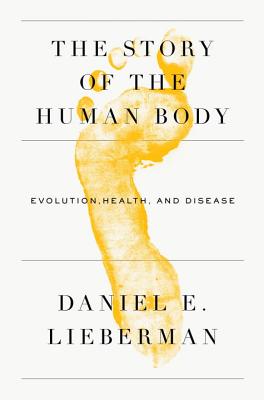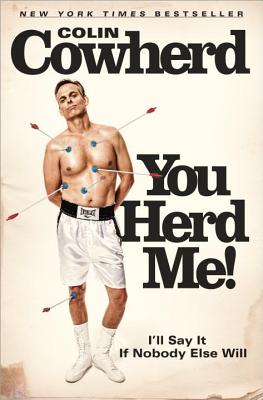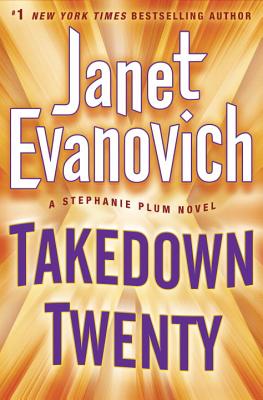Empress Dowager Cixi (1835–1908) is the most important woman in Chinese history. She ruled China for decades and brought a medieval empire into the modern age. At the age of sixteen, in a nationwide selection for royal consorts, Cixi was chosen as one of the emperor’s numerous concubines. When he died in 1861, their five-year-old son succeeded to the throne. Cixi at once launched a palace coup against the regents appointed by her husband and made herself the real ruler of China—behind the throne, literally, with a silk screen separating her from her officials who were all male.
In this groundbreaking biography, Jung Chang vividly describes how Cixi fought against monumental obstacles to change China. Under her the ancient country attained virtually all the attributes of a modern state: industries, railways, electricity, the telegraph and an army and navy with up-to-date weaponry. It was she who abolished gruesome punishments like “death by a thousand cuts” and put an end to foot-binding. She inaugurated women’s liberation and embarked on the path to introduce parliamentary elections to China. Chang comprehensively overturns the conventional view of Cixi as a diehard conservative and cruel despot.
Cixi reigned during extraordinary times and had to deal with a host of major national crises: the Taiping and Boxer rebellions, wars with France and Japan—and an invasion by eight allied powers including Britain, Germany, Russia and the United States. Jung Chang not only records the Empress Dowager’s conduct of domestic and foreign affairs, but also takes the reader into the depths of her splendid Summer Palace and the harem of Beijing’s Forbidden City, where she lived surrounded by eunuchs—one of whom she fell in love, with tragic consequences. The world Chang describes here, in fascinating detail, seems almost unbelievable in its extraordinary mixture of the very old and the very new.
Based on newly available, mostly Chinese, historical documents such as court records, official and private correspondence, diaries and eyewitness accounts, this biography will revolutionize historical thinking about a crucial period in China’s—and the world’s—history. Packed with drama, fast paced and gripping, it is both a panoramic depiction of the birth of modern China and an intimate portrait of a woman: as the concubine to a monarch, as the absolute ruler of a third of the world’s population, and as a unique stateswoman.
In this groundbreaking biography, Jung Chang vividly describes how Cixi fought against monumental obstacles to change China. Under her the ancient country attained virtually all the attributes of a modern state: industries, railways, electricity, the telegraph and an army and navy with up-to-date weaponry. It was she who abolished gruesome punishments like “death by a thousand cuts” and put an end to foot-binding. She inaugurated women’s liberation and embarked on the path to introduce parliamentary elections to China. Chang comprehensively overturns the conventional view of Cixi as a diehard conservative and cruel despot.
Cixi reigned during extraordinary times and had to deal with a host of major national crises: the Taiping and Boxer rebellions, wars with France and Japan—and an invasion by eight allied powers including Britain, Germany, Russia and the United States. Jung Chang not only records the Empress Dowager’s conduct of domestic and foreign affairs, but also takes the reader into the depths of her splendid Summer Palace and the harem of Beijing’s Forbidden City, where she lived surrounded by eunuchs—one of whom she fell in love, with tragic consequences. The world Chang describes here, in fascinating detail, seems almost unbelievable in its extraordinary mixture of the very old and the very new.
Based on newly available, mostly Chinese, historical documents such as court records, official and private correspondence, diaries and eyewitness accounts, this biography will revolutionize historical thinking about a crucial period in China’s—and the world’s—history. Packed with drama, fast paced and gripping, it is both a panoramic depiction of the birth of modern China and an intimate portrait of a woman: as the concubine to a monarch, as the absolute ruler of a third of the world’s population, and as a unique stateswoman.
In this landmark book of popular science, Daniel E. Lieberman—chair of the department of human evolutionary biology at Harvard University and a leader in the field—gives us a lucid and engaging account of how the human body evolved over millions of years, even as it shows how the increasing disparity between the jumble of adaptations in our Stone Age bodies and advancements in the modern world is occasioning this paradox: greater longevity but increased chronic disease.
The Story of the Human Body brilliantly illuminates as never before the major transformations that contributed key adaptations to the body: the rise of bipedalism; the shift to a non-fruit-based diet; the advent of hunting and gathering, leading to our superlative endurance athleticism; the development of a very large brain; and the incipience of cultural proficiencies. Lieberman also elucidates how cultural evolution differs from biological evolution, and how our bodies were further transformed during the Agricultural and Industrial Revolutions.
While these ongoing changes have brought about many benefits, they have also created conditions to which our bodies are not entirely adapted, Lieberman argues, resulting in the growing incidence of obesity and new but avoidable diseases, such as type 2 diabetes. Lieberman proposes that many of these chronic illnesses persist and in some cases are intensifying because of “dysevolution,” a pernicious dynamic whereby only the symptoms rather than the causes of these maladies are treated. And finally—provocatively—he advocates the use of evolutionary information to help nudge, push, and sometimes even compel us to create a more salubrious environment.
The Story of the Human Body brilliantly illuminates as never before the major transformations that contributed key adaptations to the body: the rise of bipedalism; the shift to a non-fruit-based diet; the advent of hunting and gathering, leading to our superlative endurance athleticism; the development of a very large brain; and the incipience of cultural proficiencies. Lieberman also elucidates how cultural evolution differs from biological evolution, and how our bodies were further transformed during the Agricultural and Industrial Revolutions.
While these ongoing changes have brought about many benefits, they have also created conditions to which our bodies are not entirely adapted, Lieberman argues, resulting in the growing incidence of obesity and new but avoidable diseases, such as type 2 diabetes. Lieberman proposes that many of these chronic illnesses persist and in some cases are intensifying because of “dysevolution,” a pernicious dynamic whereby only the symptoms rather than the causes of these maladies are treated. And finally—provocatively—he advocates the use of evolutionary information to help nudge, push, and sometimes even compel us to create a more salubrious environment.
There are really two games, the one you see and the one you don't.
The way I see it, the best way to use access to both worlds is to
illuminate and reveal, not idolize and adore. It's better to be wrong
than to be played for a fool. – Colin Cowherd
In this age of billion dollar athletic marketing campaigns, “feel good” philosophy with no connection to reality, and a Sports Media echo chamber that’s all too eager swallow whatever idiotic notion happens to be in vogue at the moment, it’s tough to find people who aren’t afraid to say what they’re really thinking.
But that’s where Colin Cowherd comes in. As his millions of fans on ESPN Radio and ESPNU already know, Colin is the rare sports analyst who’s brave (or crazy) enough to speak his mind—even if it pisses some people off. Of course, it helps that a lot of what Colin has to say is simply hilarious. Lots of writers can tell you about Boston’s storied sports history. But how many can tell you why the city of Boston is America’s five year old? Lots of writers will brag about the stuff they got right, but how many will happily list all the calls they got completely and utterly wrong? Whether he’s pointing out the stupidity of conspiracy theories, explaining why media bias isn’t nearly as big a deal as many assume, or calling out those who prize short term wins over sustainability, Colin is smart, thought-provoking, and laugh-out-loud funny. Some of the questions he’s not afraid to ask in You Herd Me! include:
Is Tiger Woods really a sex addict—or does he just have good PR?
In this age of billion dollar athletic marketing campaigns, “feel good” philosophy with no connection to reality, and a Sports Media echo chamber that’s all too eager swallow whatever idiotic notion happens to be in vogue at the moment, it’s tough to find people who aren’t afraid to say what they’re really thinking.
But that’s where Colin Cowherd comes in. As his millions of fans on ESPN Radio and ESPNU already know, Colin is the rare sports analyst who’s brave (or crazy) enough to speak his mind—even if it pisses some people off. Of course, it helps that a lot of what Colin has to say is simply hilarious. Lots of writers can tell you about Boston’s storied sports history. But how many can tell you why the city of Boston is America’s five year old? Lots of writers will brag about the stuff they got right, but how many will happily list all the calls they got completely and utterly wrong? Whether he’s pointing out the stupidity of conspiracy theories, explaining why media bias isn’t nearly as big a deal as many assume, or calling out those who prize short term wins over sustainability, Colin is smart, thought-provoking, and laugh-out-loud funny. Some of the questions he’s not afraid to ask in You Herd Me! include:
Is Tiger Woods really a sex addict—or does he just have good PR?
Is “work-life balance” really the ideal we should all strive for—or is that just a way for people feel better about mediocrity?
Is talent really all it’s cracked up to be—or can too much talent actually be counterproductive?
Is the X games really a sport—or would we all be better off if we admitted it’s something else entirely?
Is Hell really a supernatural place of fire and brimstone—or is it actually just another word for living in Tampa?
Unapologetically entertaining and packed with behind-the-scenes insights you won’t get anywhere else, You Herd Me! is unlike any other sports book ever written.
Unapologetically entertaining and packed with behind-the-scenes insights you won’t get anywhere else, You Herd Me! is unlike any other sports book ever written.
Stephanie Plum has her sights set on catching a notorious mob boss. If she doesn’t take him down, he may take her out.
New Jersey bounty hunter Stephanie Plum knows better than to mess with family. But when powerful mobster Salvatore “Uncle Sunny” Sunucchi goes on the lam in Trenton, it’s up to Stephanie to find him. Uncle Sunny is charged with murder for running over a guy (twice), and nobody wants to turn him in—not his poker buddies, not his bimbo girlfriend, not his two right-hand men, Shorty and Moe. Even Trenton’s hottest cop, Joe Morelli, has skin in the game, because—just Stephanie’s luck—the godfather is his actual godfather. And while Morelli understands that the law is the law, his old-world grandmother, Bella, is doing everything she can to throw Stephanie off the trail.
It’s not just Uncle Sunny giving Stephanie the run-around. Security specialist Ranger needs her help to solve the bizarre death of a top client’s mother, a woman who happened to play bingo with Stephanie’s Grandma Mazur. Before Stephanie knows it, she’s working side by side with Ranger and Grandma at the senior center, trying to catch a killer on the loose—and the bingo balls are not rolling in their favor.
With bullet holes in her car, henchmen on her tail, and a giraffe named Kevin running wild in the streets of Trenton, Stephanie will have to up her game for the ultimate takedown.
New Jersey bounty hunter Stephanie Plum knows better than to mess with family. But when powerful mobster Salvatore “Uncle Sunny” Sunucchi goes on the lam in Trenton, it’s up to Stephanie to find him. Uncle Sunny is charged with murder for running over a guy (twice), and nobody wants to turn him in—not his poker buddies, not his bimbo girlfriend, not his two right-hand men, Shorty and Moe. Even Trenton’s hottest cop, Joe Morelli, has skin in the game, because—just Stephanie’s luck—the godfather is his actual godfather. And while Morelli understands that the law is the law, his old-world grandmother, Bella, is doing everything she can to throw Stephanie off the trail.
It’s not just Uncle Sunny giving Stephanie the run-around. Security specialist Ranger needs her help to solve the bizarre death of a top client’s mother, a woman who happened to play bingo with Stephanie’s Grandma Mazur. Before Stephanie knows it, she’s working side by side with Ranger and Grandma at the senior center, trying to catch a killer on the loose—and the bingo balls are not rolling in their favor.
With bullet holes in her car, henchmen on her tail, and a giraffe named Kevin running wild in the streets of Trenton, Stephanie will have to up her game for the ultimate takedown.
From his humble beginnings in a desolate Iowa coal mining town, his years at Our Lady Queen of Chewbacca High School to his odds-defying climb to the dizzying heights of becoming America’s most trusted and beloved television News Anchor, Ron Burgundy pulls no punches in Let Me Off at the Top!
In his very own words Burgundy reveals his most private thoughts, his triumphs and his disappointments. His life reads like an adventure story complete with knock down fights, beautiful women and double-fisted excitement on every page. He has hunted jackalopes with Bobby Kennedy and Peter Lawford, had more than his share of his amorous exploits, and formed the greatest on-air team in the history of televised news. Along the way, he hobnobbed with people you wish you knew and some you honestly wish you didn't -- celebrities, presidents, presidents' wives, celebrities' wives, dogs, and, of course Veronica Corningstone, the love of his life. Walter Cronkite, Barbra Streisand, Katie Couric, the list goes on. Who didn’t Mr. Burgundy, or “Ron” as he is known to his friends, rub elbows with in the course of his colorful and often criminal life?
This may well be the most thrilling book ever written, by a man of great physical, moral and spiritual strength and not surprisingly a great literary talent as well. This book deserves a real shot at a Pulitzer Prize. In fact if it doesn’t win one then we will finally have proof that the Pulitzer is rigged.
Ron Burgundy has taken the time to write a book. We owe it to him, as honest Americans, to read it.





No comments:
Post a Comment